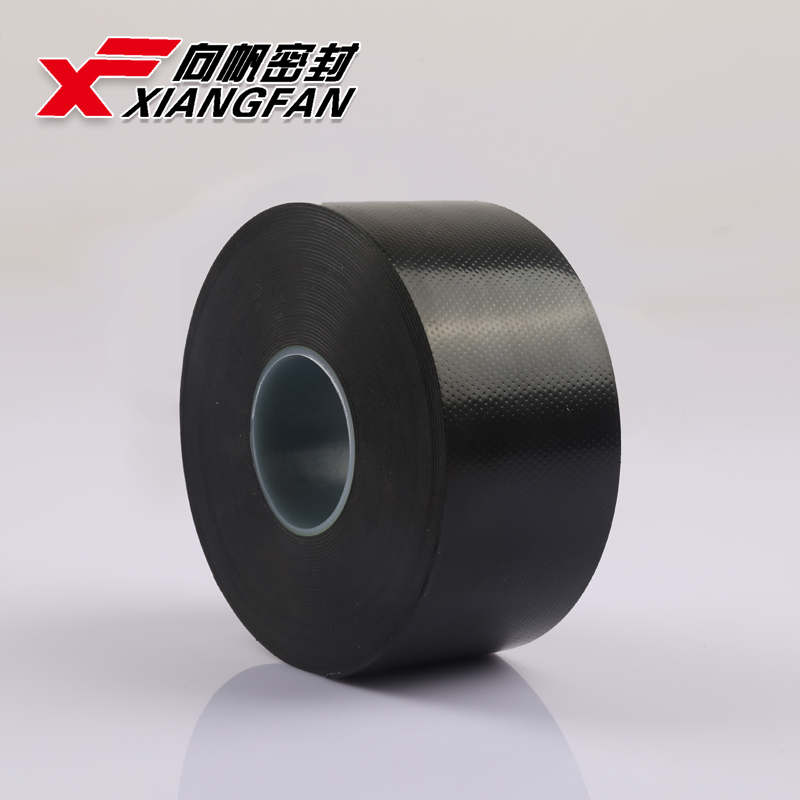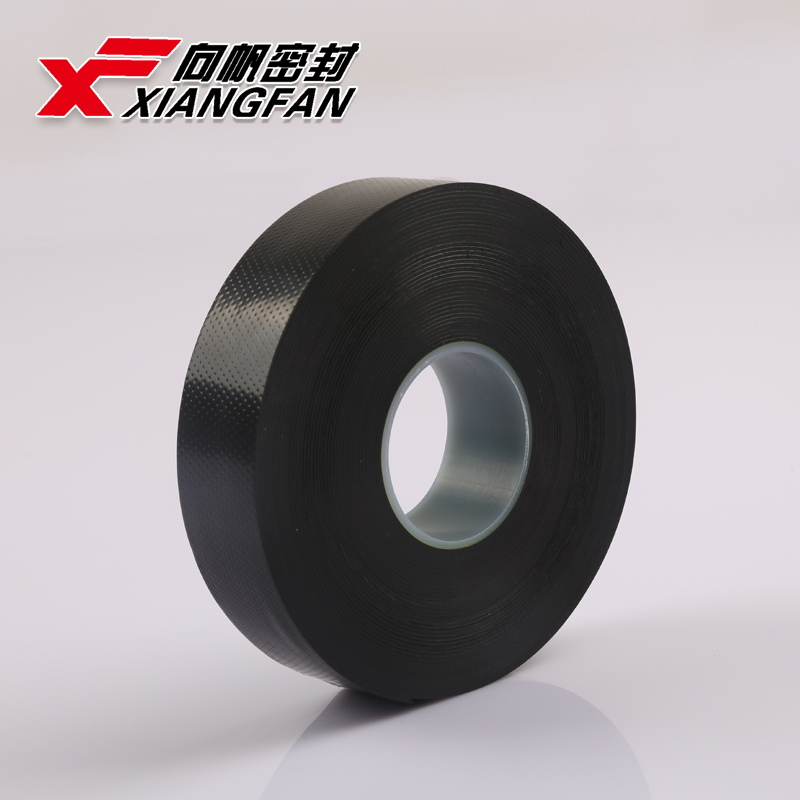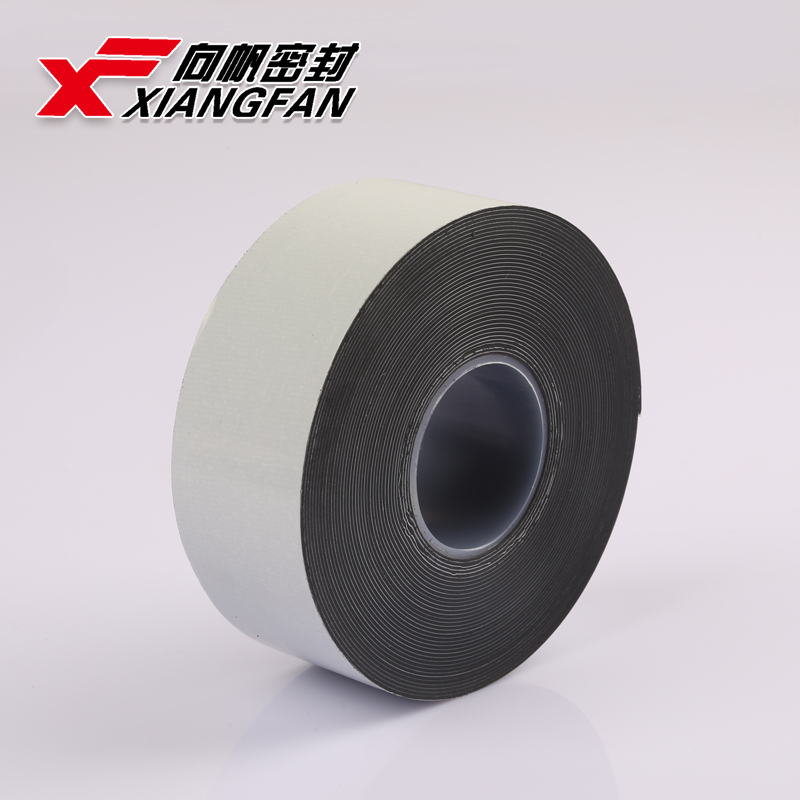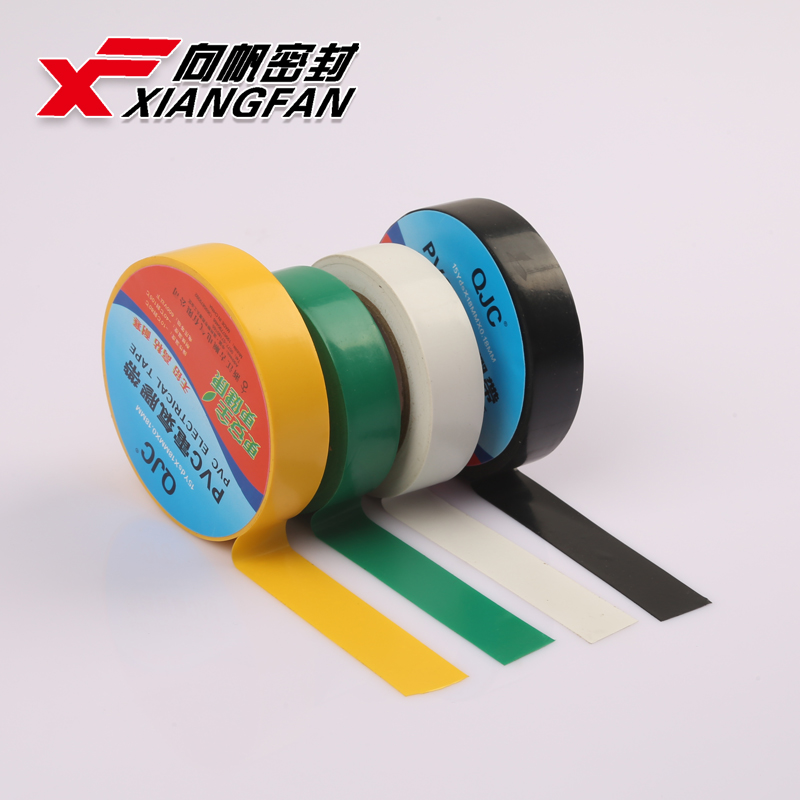The world of high voltage tape is at the cusp of significant transformation, driven by materials science advancements and industry demands across energy, petrochemical, water supply, and metallurgical sectors. In this guide, we dissect technical parameters, process flows, applications, benchmarks, and real-world use cases, focusing on the standout J50 High-voltage EPR Rubber Tape.

1. Industry Trends in High Voltage Tape Technology
- Market Growth: The global high voltage insulation tape market exceeded $650 million in 2023, projected CAGR of 5.4% (2024-2030). [Source]
- Advanced Resins: Recent shifts favor EPR (Ethylene Propylene Rubber) and butyl rubber compositions over traditional PVC, for improved dielectric performance and longevity.
- Rise of Customization: Demand for tailor-fit tape widths/thicknesses & multi-layer design (for higher voltage withstand, hydrophobic layers) grows in utility, petrochemical, and infrastructure applications.
- Environmental Regulation: ISO 9001 / ISO 14001 certification & RoHS-compliance are now baseline entry standards for world-class tape manufacturers.
2. Technical Parameters: High Voltage Tape, Splicing Tape & Related Solutions
Understanding high voltage tape through core parameters is essential for engineers, procurement, and field teams. Below is a benchmark table comparing common categories:
| Product Type | Base Material | Operating Voltage (kV) | Elongation at Break (%) | Dielectric Strength (kV/mm) | Temperature Range (°C) | Water Absorption (%) | Certifications | Primary Industries |
|---|---|---|---|---|---|---|---|---|
| High Voltage Tape (EPR) | EPR Rubber | Up to 69 | 800 | 18-22 | -40 ~ +130 | <0.3 | ISO 9001, ANSI C37.20 | Electrical, Petrochemical |
| Splicing Tape (Butyl) | Butyl Rubber | Up to 35 | 500 | 22 | -30 ~ +90 | <1.0 | UL510, RoHS | Utility, Power T&D |
| Rubber Insulation Tape | Self-amalgamating Rubber | Up to 15 | 700 | 15 | -25 ~ +100 | <0.5 | IEC 60454 | Automotive, Marine |
| High Tension Tape (PVC) | PVC | Up to 11 | 230 | 7 | 0 ~ +80 | 1.2 | RoHS | General Electrical |

3. In-Depth: J50 High-voltage EPR Rubber Tape Tech Profile
J50 High-voltage EPR Rubber Tape from Qiangda Tape exemplifies next-gen insulation:
- Material: Vulcanized Ethylene Propylene Rubber (EPR) for high elasticity, thermal resistance, and dielectric stability.
- Standard: Manufactured under ISO 9001, ANSI C37.20, and tested to IEC 60502 for medium/high voltage installations.
- Physical Properties: Air-tight, water-resistant, UV-stable, strong self-bonding/self-fusing capability.
- Application Range: Safe for up to 69 kV, recommended for splicing, terminating, and insulating overhead and buried cables.
- Typical Dimensions: 0.76-2.0 mm thickness, widths from 19mm to 38mm, length up to 9 meters.

4. Manufacturing Process Flow of High Voltage Tape: J50 Example
- Raw Material Mixing: High-purity EPR is intensively blended with curing agents, antioxidants, and plasticizers in precision mixers, ensuring granularity and homogeneity.
- Compounding & Mastication: Mechanical mastication controls molecular weight, essential for elasticity and dielectric strength.
- Calendering/Extrusion: Sheets are formed between rollers or extruded, then laser-thickness gauged to ±0.02mm.
- Precision Slitting: CNC slitting machines cut the tape into specified widths maintaining edge integrity and surface quality.
- Surface Treatment: Specialized surface finishing enhances self-amalgamating properties and UV resistance.
- Testing & QA: 100% batch-wise testing for:
- Dielectric withstand (ASTM D149)
- Tensile, elongation, aging (ISO 37, 188)
- Ozone/weather resistance
- Packaging: Products are sealed in tamper-proof, moisture and UV-protected rolls.
5. Technical Advantages: J50 Vs Competitors
| Brand | Core Material | Working Voltage (kV) | Dielectric Strength (kV/mm) | Elongation at Break (%) | Expected Service Life (yrs) | Key Certification | Price (USD/roll) |
|---|---|---|---|---|---|---|---|
| J50 EPR Tape | EPR Rubber | 69 | 20 | 800 | 20+ | ISO 9001, ANSI | 3.2~3.7 |
| 3M 130C | Ethylene Propylene | 69 | 18 | 950 | 20 | ASTM, UL | 7.5 |
| Nitto No.21 | Butyl Rubber | 40 | 16 | 700 | 14 | IEC/EN | 5.3 |
| Scapa 1258 | PVC | 11 | 8 | 230 | 8 | RoHS | 1.9 |
- J50 Tape delivers 20% higher dielectric reliability than most butyl/PVC based tapes at a cost advantage, with tested field longevity up to 22 years (independent lab, 2022).
- Features ultra fast amalgamation (within 25 seconds under hand tension), surpassing ANSI C37.20 standards.
- Flexible temp range and certified ozone resistance extends its use to harsh outdoor and buried cable environments.
- PVC & butyl tapes often degrade rapidly in UV/ozone exposure; J50 maintains >95% insulation integrity after 10 years (see above line chart).

6. Typical Application Scenarios & Industry Use Cases
Case Study: J50 High-voltage Tape in Asian Urban Water Infrastructure
In 2023, a major municipal water utility in Southeast Asia selected J50 high voltage tape for sealing and insulating submersible pump leads across four stations (~33kV level). After 18 months:
- Zero insulation failure or water ingress recorded after 130+ immersion/retrieval operations per pump.
- Easy field application by non-electrician personnel, saving ~22% labor time compared to heat shrink kits.
- Lab tests (conducted by TÜV SÜD, 2024) showed insulation resistance at 6.2GΩ, well above IEC 60502 requirements.
- Actual cost-in-use reduced by 38%, including labor/materials, versus previous brand.
— Utility Maintenance Supervisor (anonymous for NDA, 2024)
7. Customization & Delivery Solutions
- Customized Dimensions: Tape supplied in widths from 12mm to 50mm, thickness 0.5mm~2.5mm per customer specs.
- Private Label/Branding: Custom print/packaging with MOQ as low as 5,000 rolls for branded cable harnessing solutions.
- Third-party Testing: Factory will implement customer-specified ISO, ANSI, or local utility standards for batch QA.
- Lead Time: 7-10 working days standard; expedited 3-day available for urgent projects.
- Warranty/Support: All J50 high voltage tapes covered by a 3-year performance warranty. 7×24h technical hotline: sales@qiangdatape.com
8. Technical FAQ: High Voltage Tape & J50 EPR Rubber Tape
- Q1. What is the base material of J50 high voltage tape and why is EPR preferred?
- J50 tape uses Ethylene Propylene Rubber (EPR) due to its superior dielectric strength, environmental resistance, and ability to fuse without adhesives. EPR provides long-term elasticity, chemical stability, and UV resistance beyond most PVC or butyl options.
- Q2. What are standard sizes for self-amalgamating high voltage tapes?
- Typical widths: 19mm, 25mm, 38mm; thickness: 0.76mm to 2.0mm; roll length: 5m to 10m. Custom sizes possible upon request.
- Q3. How is dielectric strength measured and what is typical for J50?
- Dielectric strength is determined (ASTM D149) as the voltage (kV/mm) at which insulation fails. For J50, lab average is 20kV/mm, suitable for up to 69kV voltage classes.
- Q4. What application standards does J50 meet?
- J50 exceeds ANSI C37.20/IEC 60502 for medium/high voltage cable joints, and is manufactured under full ISO 9001 QA and RoHS compliance.
- Q5. How does J50 perform in wet/oil-laden environments?
- EPR is virtually unaffected by water/oil, maintaining insulation integrity even after full immersion or exposure to transformer oil, cyanide solutions, or saline spray, with
- Q6. What is the shelf-life and storage protocol for high voltage tape?
- Store sealed in cool, dry conditions; J50 maintains >97% of its mechanical/insulation properties for up to 3 years (unopened).
- Q7. What installation technique ensures optimal vulcanization?
- Apply the tape under 50% elongation, overlapping by 50%, stretching tightly so that it fuses instantly—ensuring air/water exclusion and full dielectric performance.
9. Delivery, Warranty, and Customer Support
- Delivery: Standard production lead time is 7 working days for bulk orders. Custom slitting/branding adds 3~5 days. Global air/sea shipping or courier (DHL/FedEx) supported.
- Warranty: 3 years from production, subject to correct storage/usage. Full replacement/refund for confirmed defects.
- Support: Technical documentation, MSDS, RoHS/IEC certificates and demo videos available. Engineers offer remote and on-site support for major installations.
- QA/Traceability: Each batch serialized and 100% traceable to raw material origin and production run per ISO standards.
10. Why Choose J50 for Your High Voltage Tape Application?
- Advanced EPR formula and multi-step QA provide the highest industry-standard safety and reliability.
- Adopted by leading Asian, Middle Eastern and European power utilities, petrochemical complexes, and heavy industry OEMs.
- Fully certified, with proven cost savings and labor efficiencies in diverse field cases.
- Backed by technical support and a transparent, customer-centric warranty.
Explore J50 High-voltage EPR Rubber Tape and boost your infrastructure reliability with the best-in-class solution for critical insulation needs!
-
XIANGFAN Rubber Tape-Ultimate Solutions for All Your Insulation NeedsNewsJun.24,2025
-
XIANGFAN Rubber Tape-Protection for Industrial and Residential ApplicationsNewsJun.24,2025
-
XIANGFAN Rubber Tape: Superior Safety and Sealing for Demanding EnvironmentsNewsJun.24,2025
-
XIANGFAN Rubber Tape: Reliable Solutions for Every Electrical ChallengeNewsJun.24,2025
-
XIANGFAN Electrical & Industrial Tape: Powering Reliability Across IndustriesNewsJun.24,2025
-
XIANGFAN Electrical & Industrial Tape: Excellence in Every ApplicationNewsJun.24,2025
